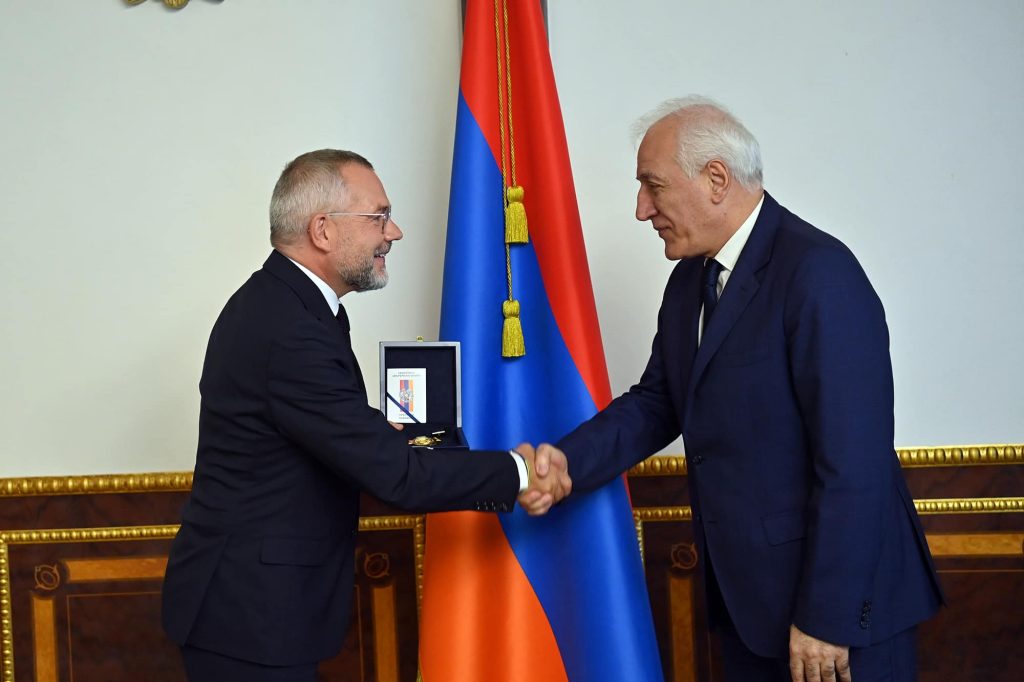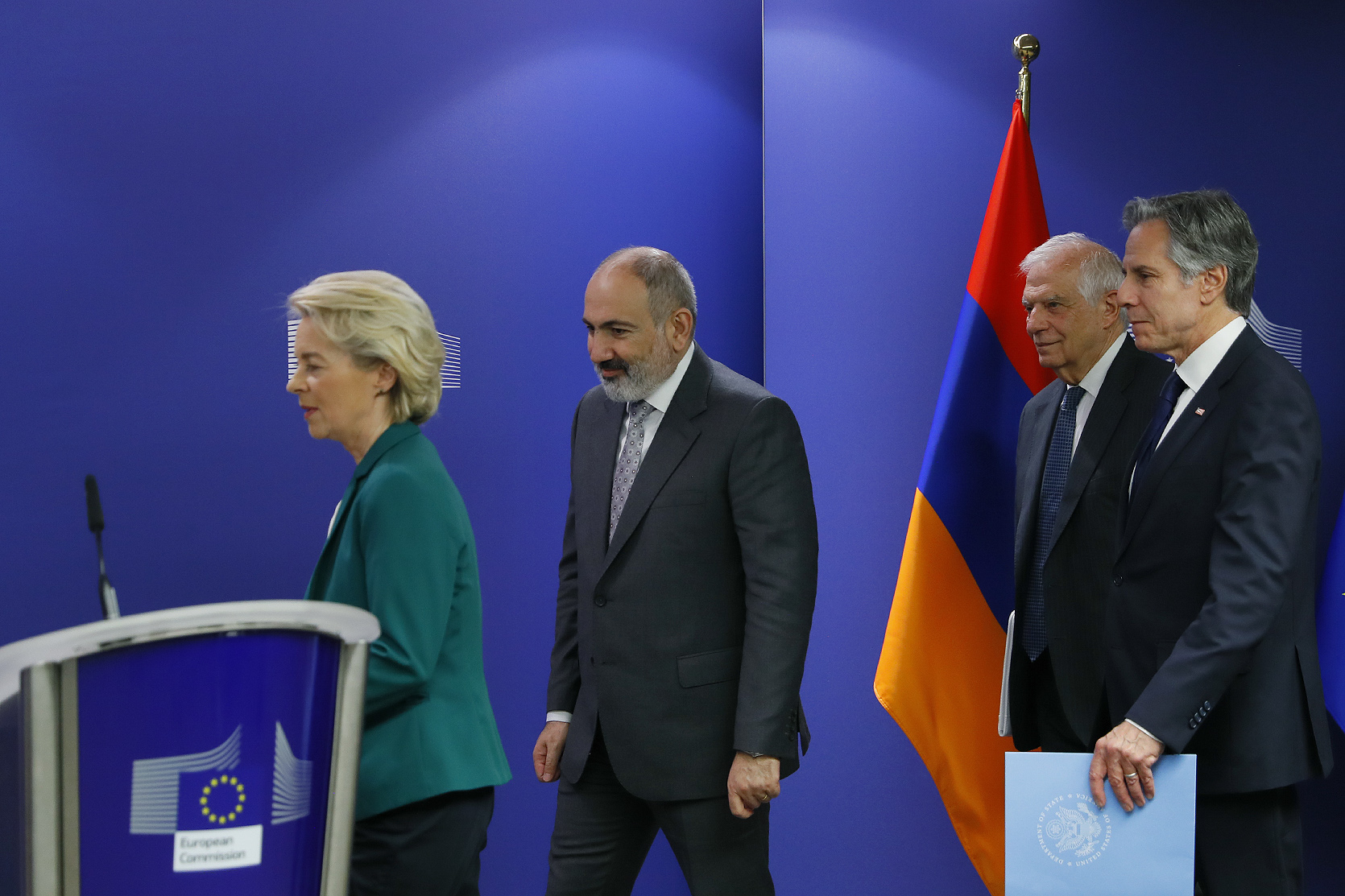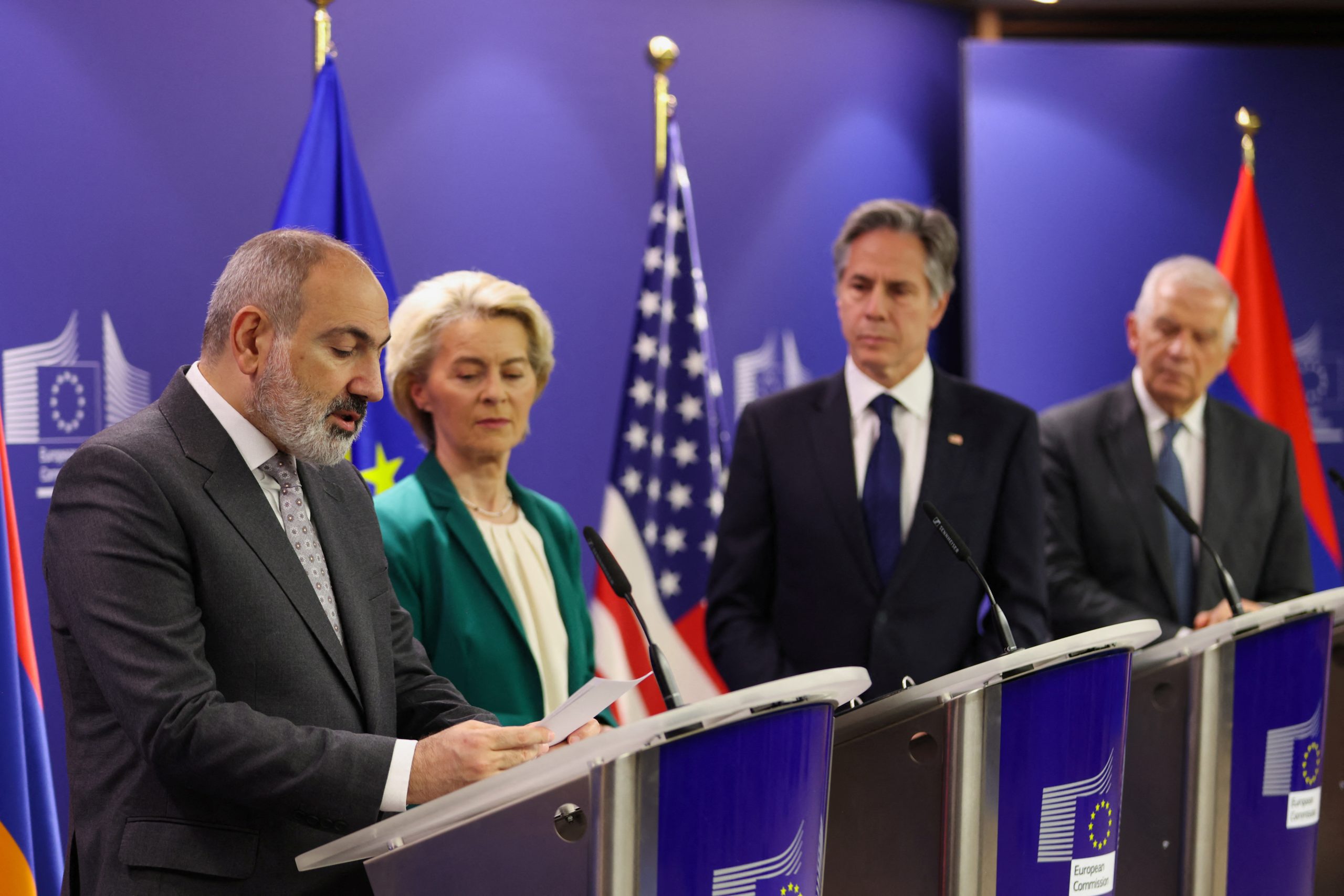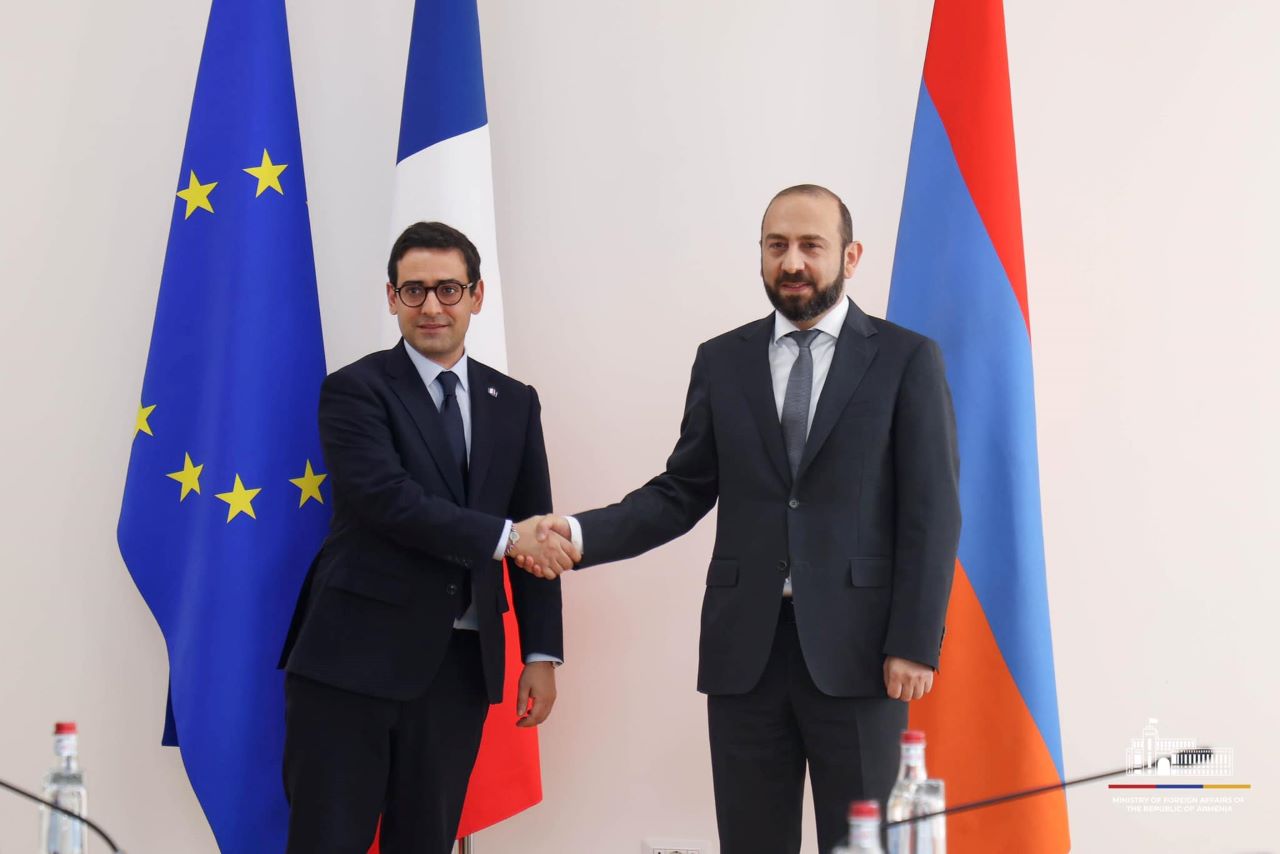"Zangezur Corridor is Armenia, full stop," - Bundestag representative in Yerevan
Michael Roth in Yerevan
Germany fully supports the position of official Yerevan regarding the unblocking of communications in the region. This was stated by Michael Roth, Chairman of the Bundestag’s Foreign Affairs Committee, during his visit to Armenia.
“The territory that some believe should be part of the so-called ‘Zangezur corridor’ is the territory of Armenia, period. The Armenian side has stated that it can independently ensure safe and uninterrupted movement along this road. It is clear that Armenia’s sovereignty and jurisdiction extend over this territory,” he said.
During his press conference, Roth reminded that he had visited Armenia a year ago, when there was “ethnic cleansing in Nagorno-Karabakh and the violent deportation of residents from Artsakh.” He assured that he has always condemned these events and called for the prompt return of Armenian prisoners held in Azerbaijan. However, when asked about the likelihood of the return of Karabakh Armenians to their homeland, Roth emphasized, “We should not make promises to people that will not be fulfilled.”
During his visit to Yerevan, Roth met with the prime minister of Armenia, the president, and the Vice-Speaker of Parliament. His sensational statements were made during a press conference at the German Embassy.
- “CSTO poses a threat to Armenia’s security and future existence,” says Pashinyan
- “Contradictions between Russia and Iran on the ‘corridor’ issue are obvious”: Opinion from Yerevan
- “Baku promised Moscow to delay signing the agreement with Armenia” – Opinion from Yerevan
Unblocking communications and Armenia-EU relations: a discussion with Pashinyan
The prime minister’s office reports that during the meeting between Pashinyan and Roth, they discussed the signing of a peace treaty between Armenia and Azerbaijan, the border delimitation process, and the Armenian government’s proposed initiative, “Crossroads of the World.” The aim of this initiative is to unblock regional transport communications.
The Armenian prime minister presented the German guest with the “principled position” of Armenia, which states that Armenia will provide the roads but will maintain control over them. Government officials categorically reject the possibility of granting neighbors a “corridor,” which would mean losing sovereign control over the road. This specifically pertains to the “Zangezur corridor,” which Azerbaijan demands for access to its exclave of Nakhchivan, while Russia intends to exercise control over this territory.
Roth and Pashinyan also discussed Armenia’s relations with the European Union and the progress of democratic reforms in Armenia.
The Chairman of the Bundestag’s Foreign Affairs Committee also met with vice-speaker of Parliament Ruben Rubinyan, who is also Armenia’s special representative for normalizing relations with Turkey. It was reported that “at Roth’s request,” Rubinyan briefed him on the security situation in the region.
With Armenian president Vahagn Khachaturyan, the German MP spoke about cooperation between Armenia, Germany, and the EU. The president awarded the German guest the Order of Friendship “for significant contributions to strengthening and developing friendly relations between Armenia and Germany, as well as for protecting universal human values.”

“Azerbaijan is Armenia’s most difficult and aggressive neighbor”
According to the head of the Bundestag’s Foreign Affairs Committee, Armenia is living in a very challenging neighborhood.
“The most difficult and aggressive neighbor of Armenia is Azerbaijan. We understand that after being insulted, it is very hard for the country to sit down at the negotiating table with neighboring Azerbaijan. However, we will continue to support Armenia, as we consider its role in the South Caucasus to be important,” he stated.
The deputy emphasized that stability in the region can only be based on a peace agreement that meets all requirements of international law and ensures the territorial integrity of both parties.
He hopes that Baku will show flexibility and that a peace agreement can create a real foundation for peace and stability in the region.
According to Roth, Germany’s goal is to help Armenia become “a pillar of peace, stability, democracy, and freedom in the South Caucasus.”
“Being closer to the European family is Armenia’s sovereign decision”
As the German parliamentarian stated, he visited Armenia to support “friends in the government and National Assembly on the path of reforms” leading to freedom, democracy, and the protection of fundamental rights:
“People in Armenia want to live as citizens of the European Union. They specifically aspire to freedom and democracy, and they want to be able to make independent decisions.”
Roth dismissed the idea that “Europe forces a country to align with it in opposition to Russia” as “cheap propaganda.”
He also noted that there is a prevailing approach in the EU to provide opportunities for Eastern European countries, particularly Ukraine, Moldova, as well as Georgia and Armenia, to join the union:
“I would personally be very pleased if Armenia moves closer to the European family. But this is your independent, sovereign decision. I certainly understand that there are clear expectations and hopes from the EU. It is essential to continue strengthening the atmosphere of trust and move from words to action. From a security policy perspective in the EU, we advocate for deepening and strengthening our relationships.”
“The EU must do more to support Armenia and the South Caucasus”
After meetings in Yerevan, Michael Roth posted on his X social media account:
“Democracy and freedom need to be bolstered by security. The European Union must finally do more to support Armenia and the South Caucasus.”
In the same post, the German parliamentarian expressed gratitude to Armenia’s prime minister for his “courage and determination.”
“Pasinyan stands against Russian imperialism and is working diligently with Azerbaijan on a peace treaty that will ensure the territorial integrity of both countries,” Roth wrote.





















